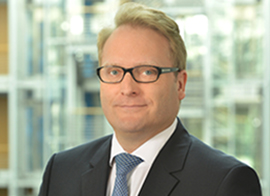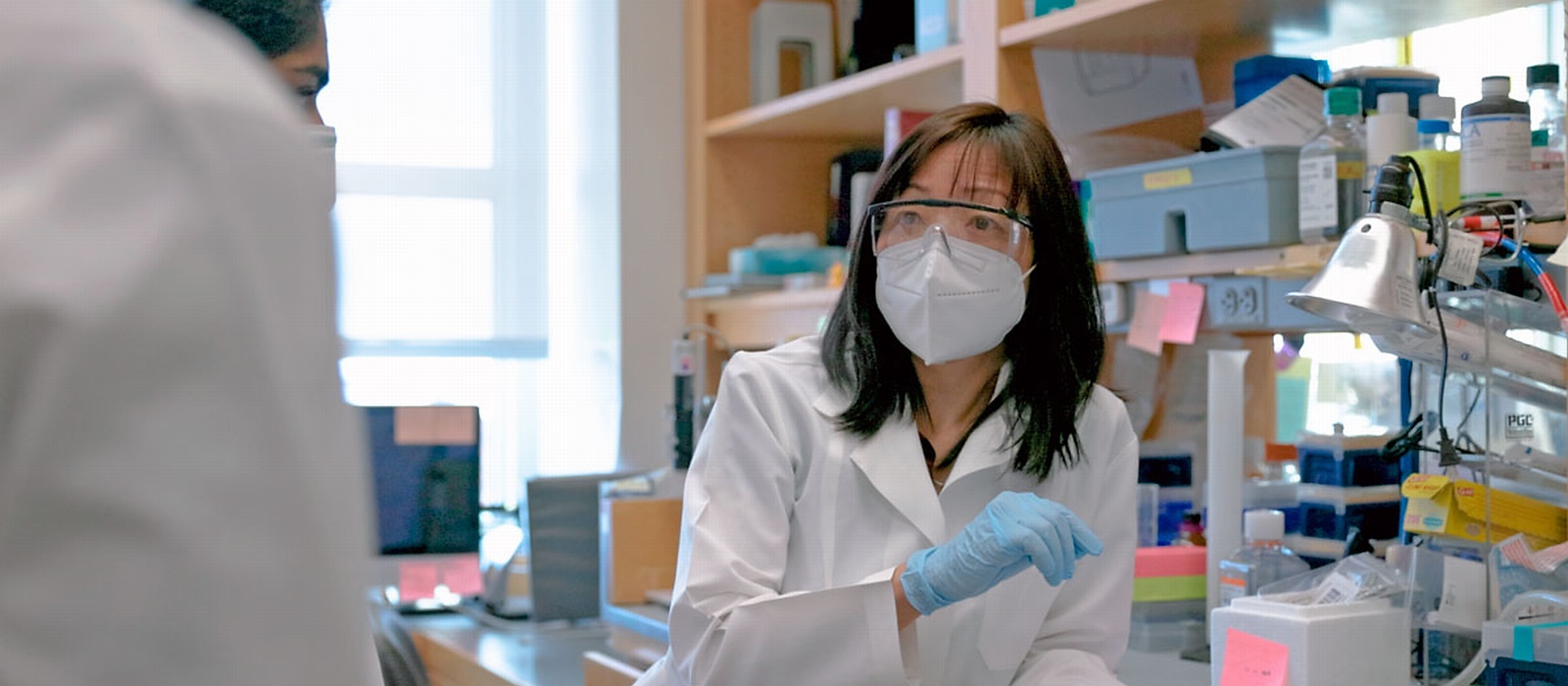
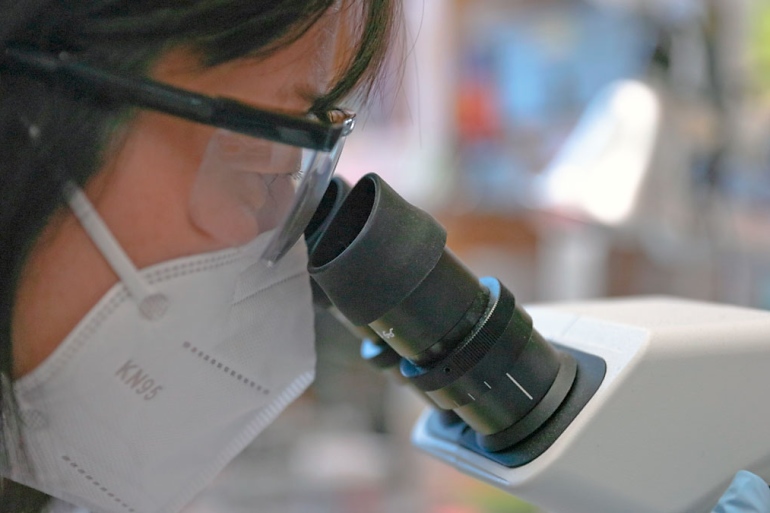
Prof. Dr. Akiko Iwasaki, Ph.D., is a Sterling Professor of Immunobiology and Molecular, Cellular and Developmental Biology at Yale University in the US. She conducts research on Covid-19 and long Covid. Prof. Iwasaki has led a research group at Yale University that investigates the mechanisms of immune defense in Long Covid, making a significant contribution to long Covid research. Prof. Iwasaki’s research interests also include a number of other topics, such as respiratory viral infections, innate immunity, and autophagy.
Fresenius editor Brigitte Baas speaks with Prof. Akiko Iwasaki, Yale professor and laureate of the Else Kröner Fresenius Prize for Medical Research 2023, about her work.
Professor Iwasaki, an important part of your work focuses on post-acute infection syndromes, including long Covid and myalgic encephalomyelitis/chronic fatigue syndrome (ME/CFS). Please explain to our readers what ME/CFS is, how it manifests itself, and how this condition relates to long Covid.
Prof. Dr. Akiko Iwasaki: ME/CFS is a systemic condition manifested mainly by a variety of different neurological and immunological symptoms and accompanied by chronic fatigue not relieved by sleep or rest.
Patients with this disorder suffer from exacerbations of symptoms following physical, cognitive, or emotional exertion beyond tolerated limits. These episodes of symptoms worsening may last for several days, weeks, months, or even be associated with irreversible decline.
What symptoms, exactly?
Prof. Iwasaki: Prominent features we commonly observe in ME/CFS include neurocognitive impairment, the so-called "brain fog", unrefreshing sleep, pain, sensory disorders, in technical jargon called sensory paresthesias, gastrointestinal problems like fullness, bloating, abdominal pain, and nausea, as well as various disorders of the autonomic nervous system.
Up to three-quarters of people with ME/CFS cases report an infection-like episode preceding the onset of their illness, while others report triggers that are apparently non-infectious or that appear to reflect a gradual build-up of symptoms.
What are the similarities between these two conditions – long Covid and ME/CFS – in terms of their genesis and progression?
Prof. Iwasaki: We have repeatedly found that a proportion of people with post-acute infection syndrome (PAIS) – which is known to be triggered by various pathogens – also meet the diagnostic criteria for chronic fatigue syndrome.
Similarly, roughly half of patients with long Covid also meet the criteria for chronic fatigue syndrome. They also develop the sustained fatigue states typical of ME/CFS. Therefore, we are very excited to use the EKFS prize funding, to compare the immune phenotypes between ME/CFS and long Covid head-to-head to understand the similarities and differences even better.
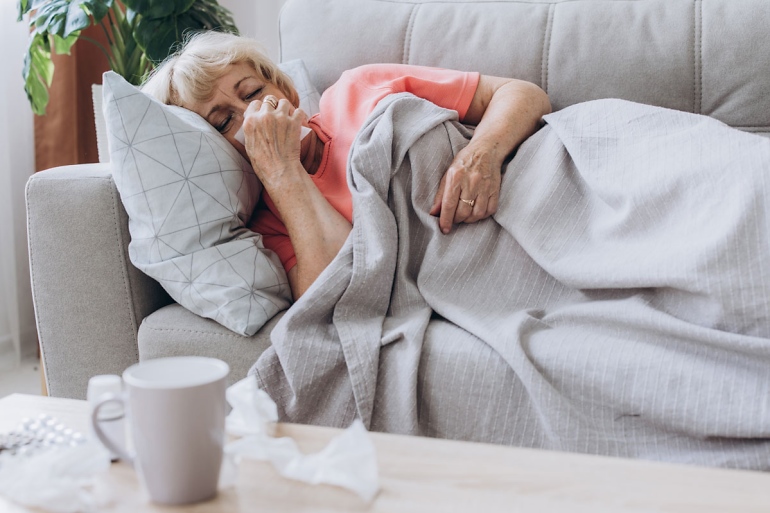
What other research results have you been able to achieve in the field of long Covid?
Prof. Iwasaki: I have been working with talented and dedicated collaborators to better understand the underlying pathobiology of long Covid. We are studying the deep immune phenotyping of people with long Covid, comparing it with those who have recovered from Covid, and those who never had Covid and are healthy. After looking at thousands of different factors, we see interesting differences in the immune signatures. For example, people with long Covid have lower levels of circulating cortisol, altered T and B cell responses, and reactivation of Epstein-Barr viruses (EBV).
And how exactly are you going to use these findings now for your future work?
Prof. Iwasaki: What we want to do is to extend the analysis to ME/CFS and understand what people with ME/CFS have in terms of their immune phenotypes, which tell us a lot about the history and the story behind how they got there and can help us better understand the underlying pathogenesis of the disease.
You won this year’s Else Kröner Fresenius Prize for Medical Research, which the Else Kröner-Fresenius Foundation (EKFS) awards to honor outstanding scientists. What does this award mean to you personally?
Prof. Dr. Akiko Iwasaki: This prize is a tremendous recognition of my team's work on antiviral immune responses, and I am humbled to be among the scientists who have received this prize in the past. But this recognition also speaks volumes about the Else Kröner-Fresenius-Foundation itself, which is boldly and publicly recognizing the post-acute infection syndromes as diseases of worldwide significance. This is a tremendous win for the patients who have advocated for decades to shed light on these diseases, which have historically been ignored and dismissed by the medical and biomedical communities.
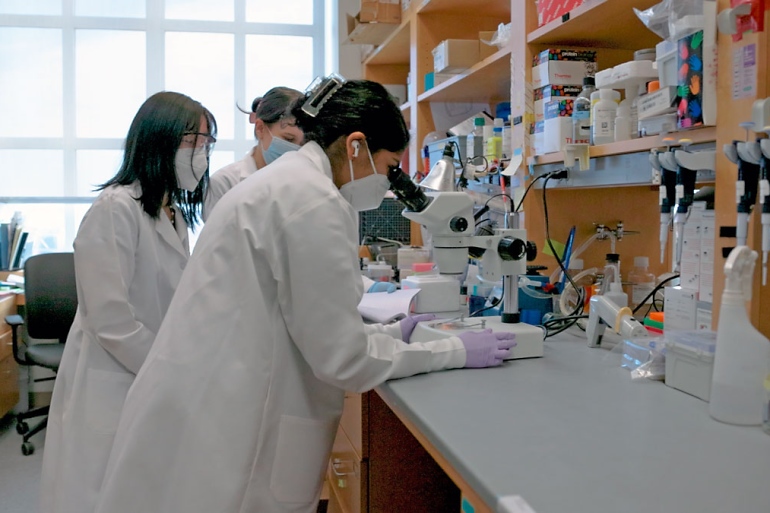
The EKFS prize is endowed with 2.5 million euros. For which research projects exactly will you use the prize money?
Prof. Iwasaki: We want to determine the underlying mechanisms of post-acute infection syndromes. We are considering several potential hypotheses here, including persistent pathogens, autoimmunity, reactivation of herpesviruses, and inflammatory changes in tissue function. Even if you clear the virus from the nose and throat, there may be a reservoir of virus somewhere in the body that continues to replicate and trigger chronic inflammation. Persistent pathogens in the body are our hypothesis No #1. We have started a clinical trial to see if antiviral treatment can help alleviate long Covid.
What other hypotheses are you investigating?
Prof. Iwasaki: Our second hypothesis is autoimmunity. There may be a relationship between autoimmunity that is triggered by a viral infection and long Covid. Hypothesis No #3 is the reactivation of latent viruses. We see evidence of EBV reactivation in people with long Covid. Finally, we have shown that even a mild Covid confined to the lung can lead to long-term inflammation in the brain. In my lab at Yale Medicine School, we want to do comparative studies of ME/CFS patients and long Covid patients to find out how exactly these two syndromes are biologically similar. By studying both diseases, we hope to better understand common and different mechanisms of the disease. Together with my team, I will use the EKFS prize money for this groundbreaking research.
To ultimately develop therapies that still do not exist to date.
Prof. Iwasaki: Yes, that is exactly what we want ultimately: to develop therapies that will help people with long Covid, ME/CFS and other post-acute infection syndromes.
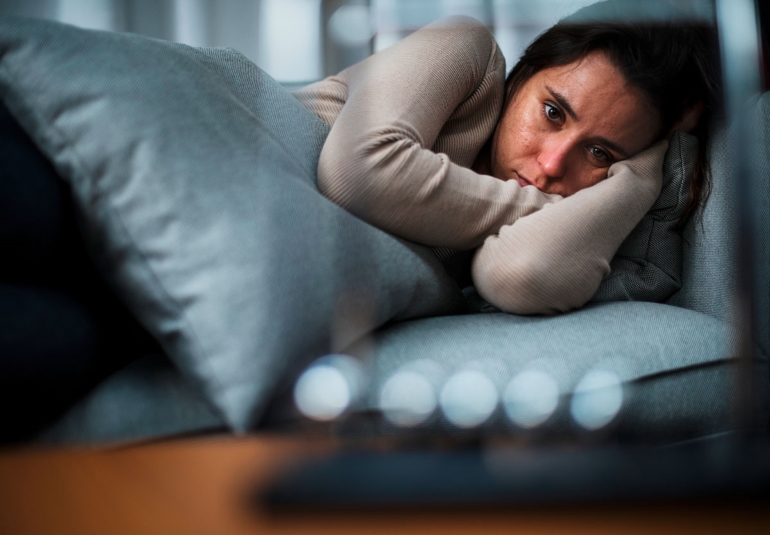
How exactly do you yourself – or other researchers – develop effective therapies for long Covid and myalgic encephalomyelitis/chronic fatigue syndrome (ME/CFS for short) from all these findings?
Prof. Akiko Iwasaki: Before we can develop good treatments, we need to understand the disease very well. We find for example that persistent viruses or viral infections are causing long Covid in a subset of people. Then, by understanding the biomarkers, we can provide antivirals or antibodies to remove the source of the problem. This knowledge can be used to identify and target the triggering virus in ME/CFS patients. If parts of long Covid patients suffer from autoimmunity, by understanding the biomarkers associated with this group, we can begin to treat these people with immune-modifying agents. The same is true for the same biomarkers in ME/CFS. These are some examples of how these findings can help find the right treatments for people with PAIS.
And how far along are you and your team, or other researchers as well, here? Are we talking weeks, months, or years before we can get a handle on long Covid and help patients?
Prof. Iwasaki: Science takes a long time to understand the causes of disease. It will not be weeks or months before we have a handle on long Covid. However, with the efforts of many groups, including ours, we are getting closer and closer to the knowledge we need. In parallel, many clinical trials are beginning to understand empirically which drugs might benefit people with long Covid. It will take a concerted global effort to get there as soon as possible.
Many people still see long Covid as a mental disorder. Even doctors and scientists admit that there may be a psychosomatic component. You have been working intensively on research into long Covid, almost since the outbreak of the Corona crisis. What is your assessment: does the psyche really play a decisive role in the development and course of long Covid? Can psychological factors or a corresponding disposition be used to explain the development of long Covid – or are these just wrong assumptions?
Prof. Iwasaki: Based on our data so far, immunological factors alone are able to classify people with long Covid vs. those who don't have long Covid with 94% accuracy. This means that we do not need to rely on other explanations, including psychological ones. Clinicians who are unfamiliar with PAIS may resort to a psychiatric or psychological diagnosis. There is undoubtedly a major danger of misdiagnosing PAIS patients as having a psychiatric disorder – because in this case, they may receive the wrong treatment and miss out on the right therapies and medications. This may even be detrimental to their recovery.
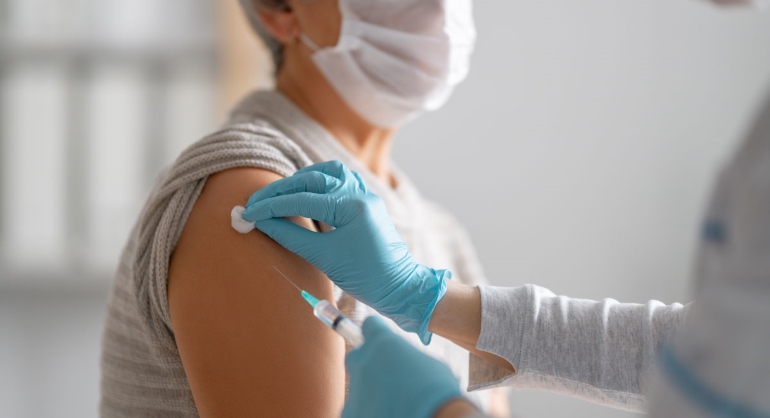
How well does vaccination actually protect a person against long Covid?
Prof. Iwasaki: Studies show that vaccination prior to acquiring SARS-CoV-2 reduces the risk of developing long Covid later on by ~30 %.
The Else Kröner-Fresenius-Foundation supports research projects, which include projects from up-and-coming young scientists. What advice would you like to give to the next generation in science?
Prof. Iwasaki: My advice to young scientists is to find the area of science that really excites them and devote themselves fully to its pursuit. That applies to any career. But, especially in science, it takes everything you need to begin to chip away at the mystery. In the long run, to be successful at anything, you have to enjoy it and enjoy yourself while doing it.
I have always been passionate about promoting the next generation of scientists. As a society, if we want to ensure a more sustainable and healthier future, we need to invest in basic science, and to do that, we must invest in the people who will carry out our future science.
In addition to your scientific research, you are teaching at Yale, and you work on numerous committees. But on top, you have another ‘side job' that has made you very well known, especially at the beginning of the pandemic: You are active on X, formerly Twitter, with about 200,000 followers. Why do you think it is right and important to publish on this channel regularly?
Prof. Iwasaki: I use X to post fact-based information about the virus, the immune system, and the vaccines. I felt the need to speak out on these issues, in the midst of misinformation and disinformation affecting millions of people around the world. As scientists, we have an obligation not only to communicate our own scientific findings, but also to use our expertise to dispel misinformation. I also think representation is important. I am an Asian American woman who is underrepresented as an "expert voice" in the media. I appreciate the opportunity to be one of those voices that provide people with accurate information.
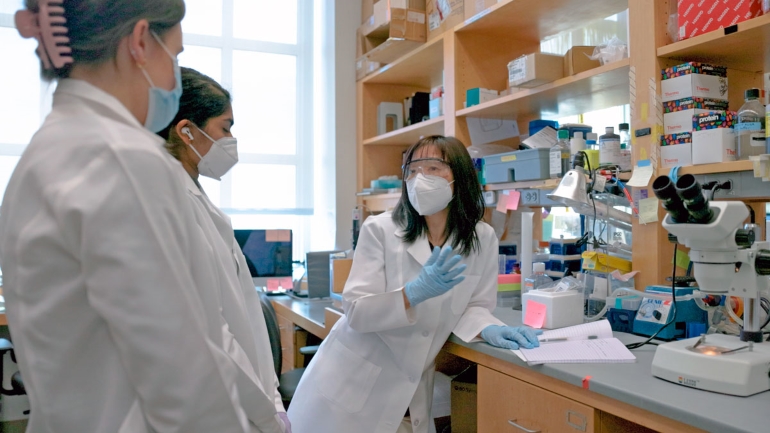
You also advocate for equity and diversity in science. You call for and promote greater participation in science by female academics as well as people with a migration background. Why is this still necessary today – hasn't academia already become more equal?
Prof. Iwasaki: We still have a long way to go to achieve equality in science. Research shows that a diverse workforce helps enhance creativity, productivity, problem solving, innovation, loyalty, and teamwork. If we want to increase our productivity in science and medicine, we need a diverse team, including women and underrepresented minorities. So even for purely selfish reasons alone, diversity is important to me. Of course, there are a myriad of other reasons why diversity makes sense.
This all sounds like a fulfilling, but also very busy, scientific, and public life. Do you have any spare time at all, and if so, what do you enjoy doing most in your leisure time?
Prof. Iwasaki: My time away from science is very precious to me. I enjoy most spending it with my family, whether it is going on a trip together or just enjoying a meal together at home. I love spending time with my two teenage daughters and learning from them about the world from their own perspectives. I love spending time with my husband. We enjoy discussing not only science, but everything else from politics to psychology. Whenever possible, I love to visit my parents and my sister and her family in Japan. Even though I left Japan as a teenager, it still forms the core of who I am. I am lucky enough to have another sister who lives in the US, and I get to see her at least once a year. Aside from that, I also enjoy reading novels, watching movies, and doing yoga.
Contact
Else Kröner-Fresenius-Stiftung
Geschäftsstelle Bad Homburg v.d.H.
Louisenstraße 120
61348 Bad Homburg v.d.H.
kontakt@ekfs.de

